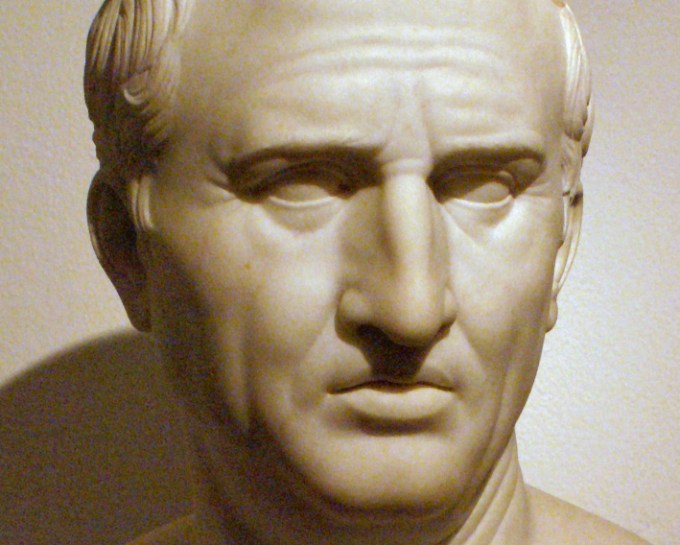Cicero on the Envy as a Counterintuitive Gateway to Compassion and Its Power as a Tuning Fork for Our Motivation
By Maria Popova
Kierkegaard lamented envy as the worst form of pettiness. Benjamin Franklin saw it as an obstacle to “true, solid happiness.” These are sensical, intuitive judgments — and yet they might be missing something essential, something counterintuitively heartening about our inescapably human capacity for envy.
That’s what the great Roman philosopher and politician Marcus Tullius Cicero (January 3, 106 BC–December 7, 43 BC) examines in a portion of his Tusculan Disputations (free ebook | public library).
Cicero, translated from Latin by C.D. Younge, writes:
Could a wise man be subject to grief, he might also be liable to pity, or even might be open to a disposition towards envy… Compassion and envy are consistent in the same man; for whoever is uneasy at any one’s adversity is also uneasy at another’s prosperity.
Cicero considers envy a “soul perturbation” and a form of grief — “a grief arising from the prosperous circumstances of another, which are in no degree injurious to the person who envies.” But because our capacity for such anguish at the good fortune of another springs from the same source as our capacity for anguish at their bad fortune, which is the wellspring of compassion, envy may be a function of our lowest self but it is inseparable from our highest self:
As pity is an uneasiness which arises from the misfortunes of another, so envy is an uneasiness that proceeds from the good success of another: therefore whoever is capable of pity is capable of envy.
Eighteen centuries before David Hume made his insightful case for vanity as proof of virtue, Cicero similarly suggests that envy is rather like a tuning fork for our instrument of motivation — a mobilizing force that helps us discern the direction of our desire and then pursue that path with purposefulness:
Envy implies being uneasy at another’s good because one does not enjoy it one’s self… How can it be right that you should voluntarily grieve, rather than take the trouble of acquiring what you want to have? For it is madness in the highest degree to desire to be the only one that has any particular happiness. But who can with correctness speak in praise of a mediocrity of evils?
In other words, envy helps us identify what we value. The wise person, Cicero intimates, is not the person immune to such human perturbations but the person who observes these emotions with openhearted curiosity, examines their causes, and uses those insights to better steer herself in the direction of what is envied in order to acquire these qualities and outcomes for herself.
Cicero recapitulates:
Wisdom is an acquaintance with all divine and human affairs, and a knowledge of the cause of everything.
For a contemporary counterpart to this particular portion of Cicero’s Tusculan Disputations, see psychoanalyst Adam Phillips’s terrific case for missing out and the value of our unlived lives.
—
Published April 11, 2016
—
https://www.themarginalian.org/2016/04/11/cicero-on-envy/
—






ABOUT
CONTACT
SUPPORT
SUBSCRIBE
Newsletter
RSS
CONNECT
Facebook
Twitter
Instagram
Tumblr